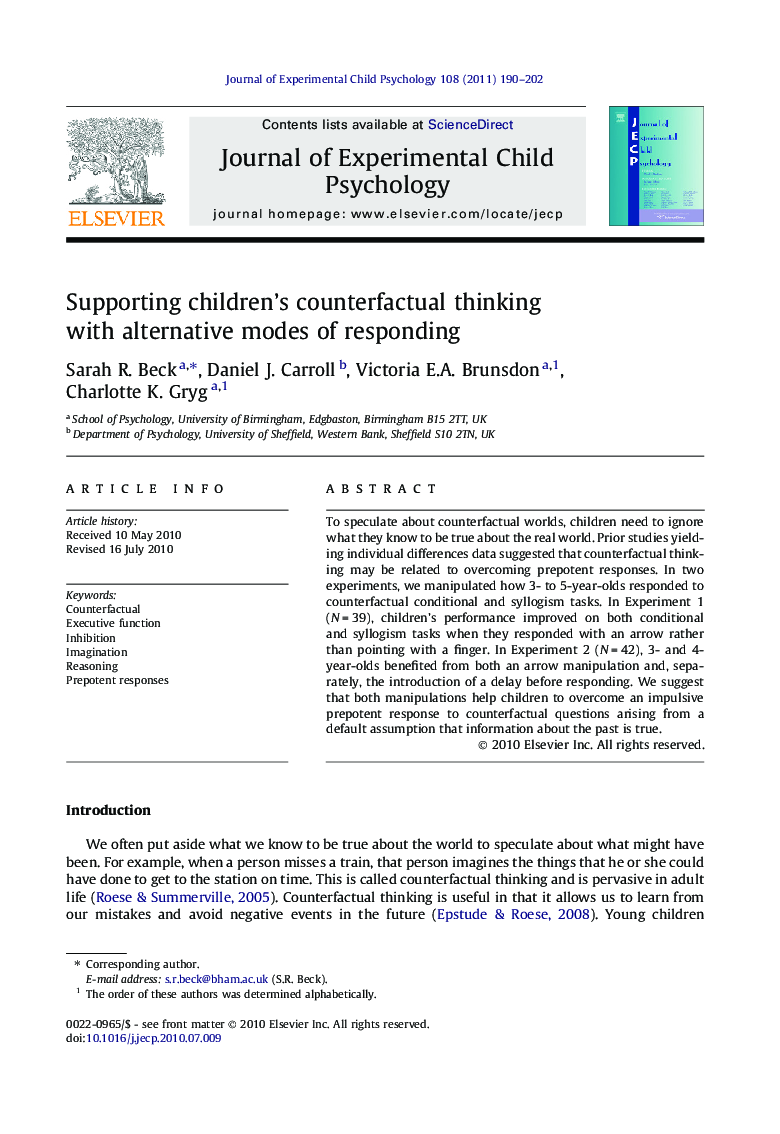| Article ID | Journal | Published Year | Pages | File Type |
|---|---|---|---|---|
| 918519 | Journal of Experimental Child Psychology | 2011 | 13 Pages |
To speculate about counterfactual worlds, children need to ignore what they know to be true about the real world. Prior studies yielding individual differences data suggested that counterfactual thinking may be related to overcoming prepotent responses. In two experiments, we manipulated how 3- to 5-year-olds responded to counterfactual conditional and syllogism tasks. In Experiment 1 (N = 39), children’s performance improved on both conditional and syllogism tasks when they responded with an arrow rather than pointing with a finger. In Experiment 2 (N = 42), 3- and 4-year-olds benefited from both an arrow manipulation and, separately, the introduction of a delay before responding. We suggest that both manipulations help children to overcome an impulsive prepotent response to counterfactual questions arising from a default assumption that information about the past is true.
